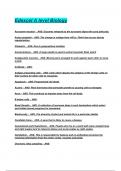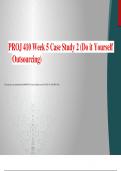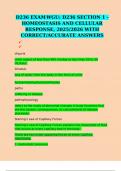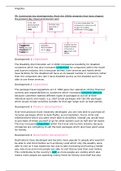and segregation in America at a very young age. She internalizes the idea that blond hair is
beautiful and that she is a fat Black girl trapped in a nightmare. Stamps, Arkansas, is so
thoroughly segregated that as a child Maya does not quite believe that white people exist. As
Maya gets older, she is confronted by more overt and personal incidents of racism, such as a
white speaker’s condescending address at her eighth-grade graduation, her white boss’s
insistence on calling her Mary, and a white dentist’s refusal to treat her. The importance of
Joe Louis’s world championship boxing match to the Black community reveals the dearth of
publicly recognized African American heroes. It also demonstrates the desperate nature of
the Black community’s hope for vindication through the athletic triumph of one man. These
unjust social realities confine and demean Maya and her relatives. She comes to learn how
the pressures of living in a thoroughly racist society have profoundly shaped the character of
her family members, and she strives to surmount them.
Debilitating Displacement: Maya is shuttled around to seven different homes between the
ages of three and sixteen: from California to Stamps to St. Louis to Stamps to Los Angeles to
Oakland to San Francisco to Los Angeles to San Francisco. As expressed in the poem she
tries to recite on Easter, the statement “I didn’t come to stay” becomes her shield against
the cold reality of her rootlessness. Besieged by the “tripartite crossfire” of racism, sexism,
and power, young Maya is belittled and degraded at every turn, making her unable to put
down her shield and feel comfortable staying in one place. When she is thirteen and moves
to San Francisco with her mother, Bailey, and Daddy Clidell, she feels that she belongs
somewhere for the first time. Maya identifies with the city as a town full of displaced people.
Maya’s personal displacement echoes the larger societal forces that displaced Black
Americans all across the country. She realizes that thousands of other terrified Black children
made the same journey as she and Bailey, traveling on their own to newly affluent parents in
northern cities, or back to southern towns when the North failed to supply the economic
prosperity it had promised. African Americans descended from slaves who were displaced
from their homes and homelands in Africa, and following the Emancipation Proclamation in
1862, blacks continued to struggle to find their place in a country still hostile to their
heritage.
Resistance to Racism: Black peoples’ resistance to racism takes many forms in I Know
Why the Caged Bird Sings. Momma maintains her dignity by seeing things realistically and
keeping to herself. Big Bailey buys flashy clothes and drives a fancy car to proclaim his worth
and runs around with women to assert his masculinity in the face of dehumanizing and
emasculating racism. Daddy Clidell’s friends learn to use white peoples’ prejudice against
them in elaborate and lucrative cons. Vivian’s family cultivates toughness and establishes
connections to underground forces that deter any harassment. Maya first experiments with
resistance when she breaks her white employer’s heirloom china. Her bravest act of defiance
happens when she becomes the first Black streetcar conductor in San Francisco. Black
people also used the church as a venue of subversive resistance. At the revival, the preacher
gives a thinly veiled sermon criticizing whites’ charity, and the community revels in the idea
of white people burning in hell for their actions.
/// Imagine growing up in a world where your voice feels insignificant, where your skin color
defines your worth, and where the trauma you carry threatens to silence you forever. This is
the world Maya Angelou confronts in her groundbreaking autobiography (I Know Why the
Caged Bird Sings). Through vivid storytelling, Angelou pulls readers into her childhood in the











